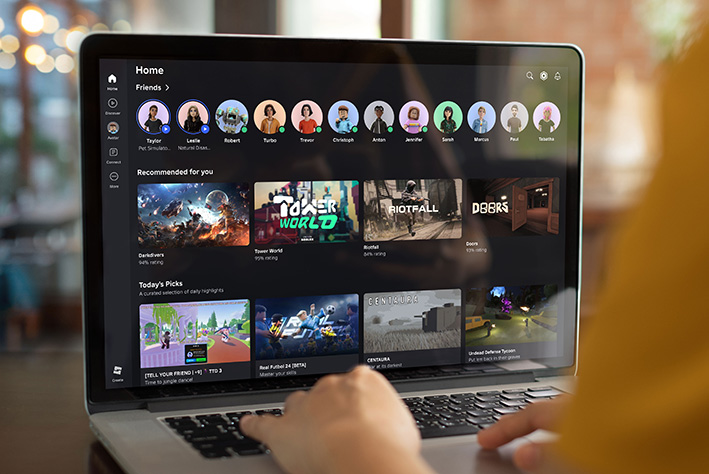Is gaming the next social media?

Opinion
The line between video games and social media has blurred and brands that recognise this could stand to benefit by integrating gaming platforms into their digital strategy.
At a recent Advertising Week New York panel focused on winning over gamers, the moderator said something that left a lasting impression on me. They likened the evolution of gaming to that of social media.
And you know what? They’re right. And it is time we — as marketers — acknowledge that evolution and shift our behaviour to suit.
The key insight here is that the addressable audience for single-player games has largely stagnated over the past decade, whereas those participating in multiplayer games has tripled.
Video games have evolved into much more than simply playing the game — there’s a social layer that goes hand in hand with online play. The line between video games and social media has blurred to a point of indistinction.
It made me wonder: could gaming eventually follow the same path as social, becoming a cornerstone of marketing strategies?
After all, it wasn’t so long ago that social media was a niche focus in advertising, with only a few brave brands experimenting in the space. Fast forward to today and entire teams within agencies are dedicated to paid social campaigns.
Could gaming be next?
The bull case: Why gaming could be the new frontier
The argument in favour of gaming becoming as central to marketing as social media rests on a few compelling points.
For starters, time spent in gaming environments is significant and growing. Studies consistently show that gamers are spending hours immersed in virtual worlds — time that advertisers could tap into. Gen Z, in particular, has embraced gaming, with 66% of this younger demographic playing regularly.
Additionally, the scale of the gaming audience rivals that of social media (191m in the US alone). Millions of people log in to games daily, whether it’s for competitive play, casual fun or simply socialising with friends.
And this brings us to the key point: gaming is social. Platforms like Discord, Twitch and Roblox exemplify this.
Originally built for gamers, Discord has evolved into a broad social platform where communities of all kinds come together to chat, collaborate and share. Recently, Discord rolled out ads, signalling its potential for integration into paid social strategies.
It’s not hard to imagine that the same teams who manage Facebook or Instagram campaigns will soon be tasked with managing advertising on platforms like Discord as well.
The bear case: Fragmentation and data challenges
On the flip side, there are some real obstacles to gaming becoming as ubiquitous for marketers as social media.
For starters, the gaming space is highly fragmented. There are numerous platforms — consoles, PC, mobile — and even within each platform, there are different games with their own communities and ecosystems.
Unlike the relatively uniform nature of social platforms, which can provide consistent ad experiences across millions of users, gaming is a far more scattered landscape.
Another challenge is the lack of user data compared with social media. Social platforms thrive on their ability to collect vast amounts of personal data, allowing marketers to target users with precision.
Some gaming environments, especially those focused on anonymity or player immersion, don’t provide the same level of detail about their users. This could limit the effectiveness of advertising and the types of campaigns marketers could run in the space.
The social nature of gaming
Despite these challenges, there’s no denying that some aspects of gaming are becoming increasingly social.
The rise of platforms like Discord, Twitch and in-game chats blurs the line between gaming and social media. Gamers aren’t just playing — they’re connecting, communicating and building communities.
Brands that recognise this social layer within gaming could stand to benefit by integrating gaming platforms into their broader digital strategy.
Looking ahead
So will gaming become the next social media for marketers? The answer is not straightforward, but it’s certainly worth paying attention to.
Just as agencies today have teams dedicated to social media, we could very well see teams emerge that are solely focused on activating campaigns within gaming environments. As the industry continues to evolve, it’s likely that certain gaming spaces — particularly the more social ones — will become indispensable parts of a brand’s marketing playbook.
For now, the takeaway is clear: gaming is no longer just about playing; it’s about connecting. And in today’s marketing landscape, where connection is everything — that’s an opportunity worth exploring.
 Kevin Fulmer is associate director, strategy and planning, at Croud
Kevin Fulmer is associate director, strategy and planning, at Croud




